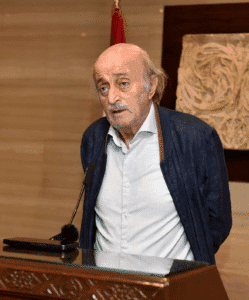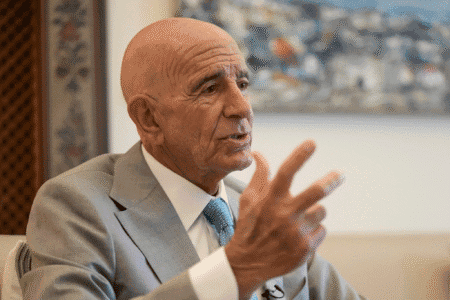“No homeland, no equality” in Lebanon.. Doctors emigrate and the health sector collapses

Lebanon’s Medical Exodus: Why Doctors Are Leaving the Country
Lebanon is facing a severe medical crisis as an increasing number of doctors are leaving the country. The ongoing economic collapse, political instability, and deteriorating healthcare system have forced many medical professionals to seek opportunities abroad.
How Many Doctors Have Left Lebanon?
The Beirut Doctors Syndicate reports that at least 400 doctors have left Lebanon since the start of the economic crisis. However, the actual number may be much higher because many doctors move to countries that do not require equivalency exams, such as the Gulf states and Eastern Europe.
Parliamentary Health Committee Chairman MP Assem Araji estimates that 1,500 doctors have left in just six months. In contrast, Beirut Doctors Syndicate head Sharaf Abu Sharaf believes this number is exaggerated, maintaining that only around 400 doctors have left.
However, there are no official statistics to accurately track the true scale of Lebanon’s medical brain drain.
The Growing Crisis: A Mass Exodus of Medical Professionals
According to Salim Abi Saleh, head of the Northern Doctors Syndicate, the situation is worsening rapidly. He warns that by the end of the year, 25% of Lebanon’s medical workforce—about 4,000 doctors—will have left.
To highlight the scale of the migration, Abi Saleh points to France’s annual medical licensing exam, which allows foreign doctors to practice in the country. This year, 250 Lebanese doctors registered for the exam—a shocking number that reflects the desperation of Lebanon’s medical professionals.
Why Are Lebanese Doctors Leaving?
1. Economic Collapse and Financial Instability
- Doctors earn salaries in Lebanese pounds, but the currency has lost over 90% of its value.
- Many hospitals cannot pay doctors on time, leaving them in financial distress.
- Some private hospitals are offering partial salaries in US dollars to convince doctors to stay.
2. Unsafe Working Conditions & COVID-19
- Overcrowded hospitals and lack of medical supplies make it difficult to treat patients.
- Lawsuits against doctors have increased due to medical complications and lack of resources.
- Many doctors were forced to choose between patients during the pandemic, leading to moral and ethical dilemmas.
3. Lack of Government Support
- Despite the risks they face, doctors receive no financial incentives from the government.
- The Ministry of Health has not paid hospitals their overdue funds, worsening financial strain.
- Calls to treat doctors like frontline soldiers with financial security for their families have been ignored.
4. Political and Social Instability
- Many doctors lost faith in Lebanon’s future after the October 17 protests and the August 4 Beirut explosion.
- With no reforms and no improvement in sight, most doctors see no future for themselves in Lebanon.
Doctors Speak Out: Why They Are Leaving
Dr. Yasmine Aqla: “There is No Homeland”
Dr. Yasmine Aqla, an endocrinologist and diabetes specialist, has practiced in Lebanon for eight years after completing her studies in France. Now, she is preparing to leave for France permanently.
She explains:
“After the October 17 revolution and the August 4 explosion, I realized we live in a country without a homeland.”
She also highlights widespread corruption in Lebanon’s medical sector, including:
- Hospital favoritism in hiring doctors.
- Unethical contracts that violate medical ethics.
- Other professions encroaching on medical roles, such as pharmacists prescribing medications.
“It’s better to migrate to a country that respects its people, its doctors, and their rights.”
Dr. Celine Rubeiz: “No Equality in Healthcare”
Dr. Celine Rubeiz, a family medicine specialist, has practiced in Lebanon since 2013. She initially believed that all patients would receive equal treatment, but she soon realized:
“Medical care in Lebanon depends on how much money a patient has. This created a moral crisis for me.”
She describes how financial inequality affects patient care:
- Patients without insurance struggle to access hospitals.
- Wealthier patients get better treatment, while others are turned away.
- Public hospitals lack resources, leaving many patients without care.
Her solution? Moving to France, where she can practice medicine without financial bias.
Dr. Ihab Ibrahim: “The Country Abandoned Us”
Dr. Ihab Ibrahim, a chest disease and intensive care specialist, spent four years in France before returning to Lebanon. Now, he is leaving Lebanon again due to:
Financial uncertainty
Lack of government support
The chaotic state of the medical sector
“We always heard praise about Lebanon’s medical sector, but when the real test came, everything collapsed.”
He adds that even top doctors are leaving, showing how deep the crisis has become.
Hospitals Are Struggling to Survive
Lebanon’s top hospitals, including the American University of Beirut Medical Center, are laying off employees and cutting costs to stay afloat.
Key Challenges Faced by Hospitals:
Unpaid funds from the Ministry of Health – Hospitals are waiting for years of unpaid dues.
Shortage of medical supplies – Importing medical equipment is difficult due to the dollar crisis.
Staff shortages – Hospitals are losing doctors, nurses, and specialists every month.
Private Hospitals Offering Dollar Incentives
To prevent more doctors from leaving, some private hospitals are now:
- Paying part of salaries in US dollars to retain key medical staff.
- Offering incentives to doctors in high-demand specialties.
However, these measures are not sustainable, and the healthcare system remains on the brink of collapse.
What Happens If More Doctors Leave?
Fewer doctors = Poorer healthcare for Lebanese citizens.
Overworked doctors = Higher risk of burnout and medical errors.
Loss of specialists = Critical medical services become unavailable.
If the government does not act quickly, Lebanon could lose half of its doctors in the coming years, leading to:
A collapse of Lebanon’s medical system
Patients forced to seek treatment abroad
Public hospitals unable to function
Will Lebanon’s Medical Sector Survive?
Lebanon is experiencing a historic medical brain drain. Without urgent reforms, doctors will continue leaving, and the country’s healthcare system will collapse.
🚨 Doctors are not just leaving for better salaries—they are leaving for a stable future.
Lebanon’s leaders must act immediately to:
Increase doctor salaries in USD
Provide financial incentives for medical workers
Ensure hospitals receive government funds
Rebuild trust in the healthcare system
If these steps are not taken, Lebanon may soon face a healthcare catastrophe.
🔴 What’s next? The world watches as Lebanon’s medical sector struggles to survive.
















